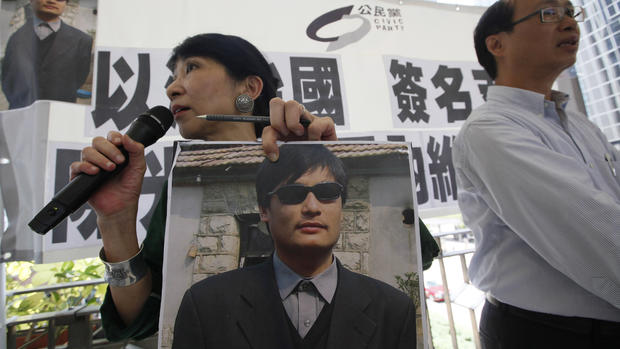With media censored, ordinary Chinese know little of Chen Guangcheng controversy
(CBS News) It looks like that diplomatic standoff between the United States and China is finally coming to an end. At the center of it is the Chinese human rights dissident Chen Guangcheng. He escaped from house arrest two weeks ago, was rescued by U.S. diplomats, and -- with Secretary of State Clinton in Beijing for talks -- he returned to the Chinese. Chen is still in a hospital being treated for a foot injury that he suffered in his escape.
Now a bid for Chen to come to the U.S. is looking more likely. He's been offered a fellowship at New York University, although China must still approve him for overseas travel.
Earlier Friday, CBS Evening News anchor Scott Pelley spoke with Asia correspondent Holly Williams in Beijing. She's been following the story for our partner, British Sky News. A transcript follows.
Pelley: The Chinese government hasn't said a great deal about all this. But I wonder knowing the Chinese as you do, what does the Chinese government get out of this potentially?
Williams: Over the last few years, we have seen human rights gradually slip down the agenda when Western governments speak to the Chinese government. What Chen Guangcheng has managed to do single-handedly by escaping house arrest, and seeking American help, is push human rights right back up to the top of the agenda.
U.S.: Chinese activist Chen Guangcheng offered American fellowship tentative deal to end standoff
China dissident behind standoff known as idealist
Clinton cites progress in Chinese activist's case
Pelley: You know, the Chinese government controls the media in that country very carefully. I wonder what the average Chinese has heard about this case over the last few days.
Williams: Very little. Things like Facebook and Twitter are blocked here and Chen Guangcheng's name has been blocked very effectively by China's censors.
But we have heard the Chinese government's opinions on this matter via the state- controlled media. I want to give you one example. An editorial in the Beijing daily newspaper today attacked the U.S. Ambassador to China, Gary Locke. They said that he is a standard-issue American politician intent on stirring up conflict.

